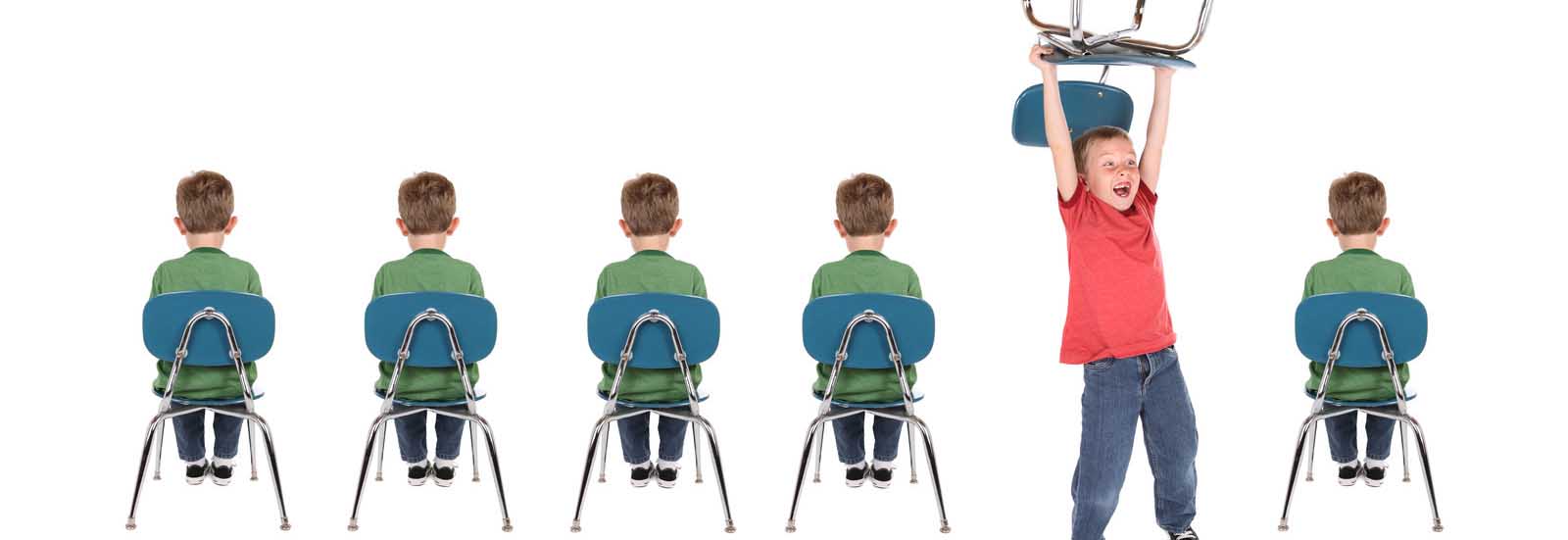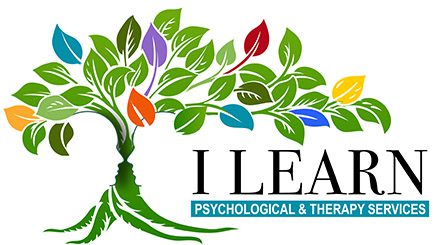ADHD

Attention-deficit/hyperactivity disorder (also known as attention deficit disorder) is also a condition that adversely affects academic performance, social interactions, and daily functioning. ADD/ADHD is defined by the presence of behavioral symptoms of inattention and hyperactivity-impulsivity. It can also co-occur with other learning disabilities. When this occurs, it is especially difficult and frustrating.
There is considerable conflict surrounding the diagnosis of ADHD. While some argue the condition is over-diagnosed and too often an excuse for lack of discipline and control, research indicates ADHD is an inefficiency in the executive functions of the frontal lobes of the brain (i.e., foresight and planning, attention and self-control). We believe that in actuality, the diagnosis of ADHD represents a number of different conditions with varying causes. For example, a significant subset of those who could be diagnosed with ADHD are in fact visual-spatial learners. They have a difficult time sustaining attention when information is being provided to them in a verbal fashion, because they do not think that way. Thus, they have particular difficulty in school. Others who are ADHD may have auditory processing deficits (that is they have trouble processing-or understanding-sounds), and thus do not respond appropriately to what is going on around them. Others have difficulty simultaneously processing sensory input from multiple senses (e.g., has a hard time paying attention to auditory and visual information at the same time). Others may have subtle brain damage (particularly in frontal regions). And some have developmental differences in brain development in the frontal brain regions related to executive functioning difficulties (which would correspond more to the theory of ADHD).
Traditional treatments for ADHD involve medication, typically stimulants (such as Ritalin or Adderall) or antidepressants (such as Prozac or Wellbutrin) and behavioral and family therapies (to provide structure to both child and family). Innovative Learning Professionals has developed brain-based, non-medication & alternative therapies to address the problems associated with attention deficit disorders. The most promising are neurotherapy, the Davis Dyslexia Correction® method, and cognitive rehabilitation. In addition, at times educational kinesthetics/sensory integration techniques and auditory processing therapies may be appropriate. I LEARN stresses internal tools and behavioral strategies to improve underlying attention abilities.
Treatment Options
Neurotherapy
Neurotherapy is currently offered at Innovative Learning Professionals. EEG neurofeedback is the most traditional form of neurotherapy. It was developed in university laboratories and is currently becoming available in mainstream practices. The research is focused on improvement with attention deficit conditions. The most common form of neurotherapy involves measuring specific portions of the brain's EEG patterns and using a computer to decipher, translate, and provide feedback to the individual regarding the brain's functioning, with a goal of normalizing that function. Over time, the brain learns to correct itself. An experimental neurotherapy approach also shows promise for ADHD, often showing significant improvement in less time than EEG neurotherapy. It involves HEG (hemoencephalographic) biofeedback, which involves a passive measure of oxygen usage in the brain (typically in the frontal regions where attention deficits appear to reside). It is nonintrusive and harmless. The theory is that repeatedly creating a greater demand for oxygen use in the brain changes both its function and its structure. Neurotherapy creates improvement in attention, concentration, and executive function by improving the overall functioning of the areas of the brain responsible for those functions.
Davis Dyslexia Correction®
Davis Dyslexia Correction® offers an alternative to traditional academic programming. It has been offered at Innovative Learning Professionals since 1999 to address the needs of learning disabled and attention deficit students. Although the Davis® method is not a strongly researched methodology at this time, our experience with the method suggests that many children who have a number of learning deficits show significant improvement, even when other methods have provided limited results. It is a unique approach to learning that includes visual-spatial and kinesthetic techniques, especially beneficial for "picture thinkers." The approach is creative and multi-sensory, necessitating that the individual "create" mental connections. The program provides results not only in academic skills but also in improved perception and greater retention. Elements of the method include symbol mastery (e.g., relearning the alphabet for symbol recognition using multisensory approach for more rapid retrieval, creating meaning for small, "sight" words), alignment and orientation (to improve attention and focus by creating a stable point of perception), picture at punctuation (to assist with reading comprehension), and sweep reading. Its strength, in actuality, is addressing underlying cognitive processes rather than attempting to improve academics through drill and repetition. For those with attention deficits who are visual-spatial thinkers, the technique results in improved attention, focus, self-control, and perception of the external world.
Cognitive Rehabilation
Cognitive Rehabilitation is the therapeutic process of increasing an individual's capacity to process and use incoming information so as to increase functioning in everyday life developed to assist those with acquired brain injuries. It includes not only methods aimed at improving cognitive function but also techniques to compensate for deficits that have not been recovered. It is a field born primarily out of neuropsychology, occupational therapy, speech and language pathology, and special education with growth also spurred by advances in computer software applications. Typically cognitive rehab focuses on the retraining of attention, visual processing, language (although speech and language specialists do much of this direct work), memory, reasoning, problem solving, and executive functions. Cognitive rehabilitation exercises require the repetitive use of the impaired cognitive system in a graded, progressively more demanding sequence which teaches the brain in a systematic way how to process information more effectively. These same programs can also be used with those with attention and learning problems that did not originate with a traumatic brain injury.
Educational Kinesthetics/Sensory Integration
This is a process that creates whole brain learning through movement repatterning. It promotes the development of neurons to enable an individual to access parts of the brain not previously available, resulting in easier learning. Simple, physical movements activate whole brain learning, especially areas of the frontal lobes. The scientific research of the last several years has established new insights into the effects of movement on learning. Research now shows us that specific movements do initiate and support mental processes. Children exhibiting perceptual problems at an early age (those who are having trouble learning the alphabet, copying letters, have poor coordination or eye-hand coordination, have attention problems, etc.) may benefit from activities that stimulate both hemispheres of the brain. Educational kinesthetics and multi-sensory integration help increase aptitude for learning and may improve attention and self-control as well. It is particularly appropriate for younger children who are not ready for other techniques.
Auditory Processing Therapies
Auditory Processing Therapies also appear to hold some promise for a subset of those with attention deficits as well. Those programs include Tomatis, Berard's Auditory Integration Therapy (AIT), Sonomas, and Therapeutic Listening. Many ADHD children have auditory processing deficits. Innovative Learning Professionals is currently researching various approaches to determine which therapy offers the most promise for ADHD. The implementation of one of these forms of treatment is planned for the near future.
We believe that by combining the most promising alternative therapies for attention deficit disorders, we provide new hope and an important new service for many individuals in our community.
